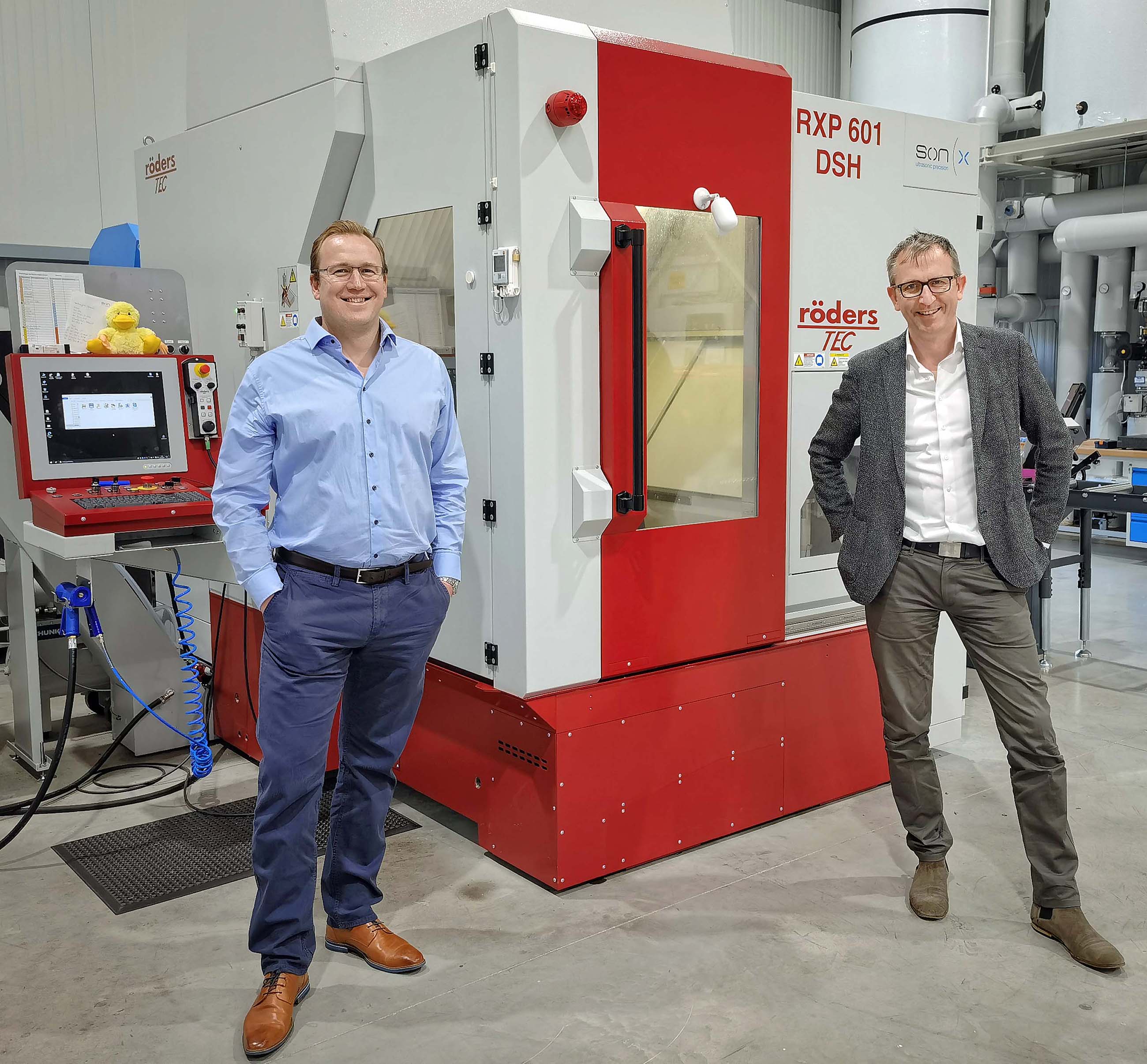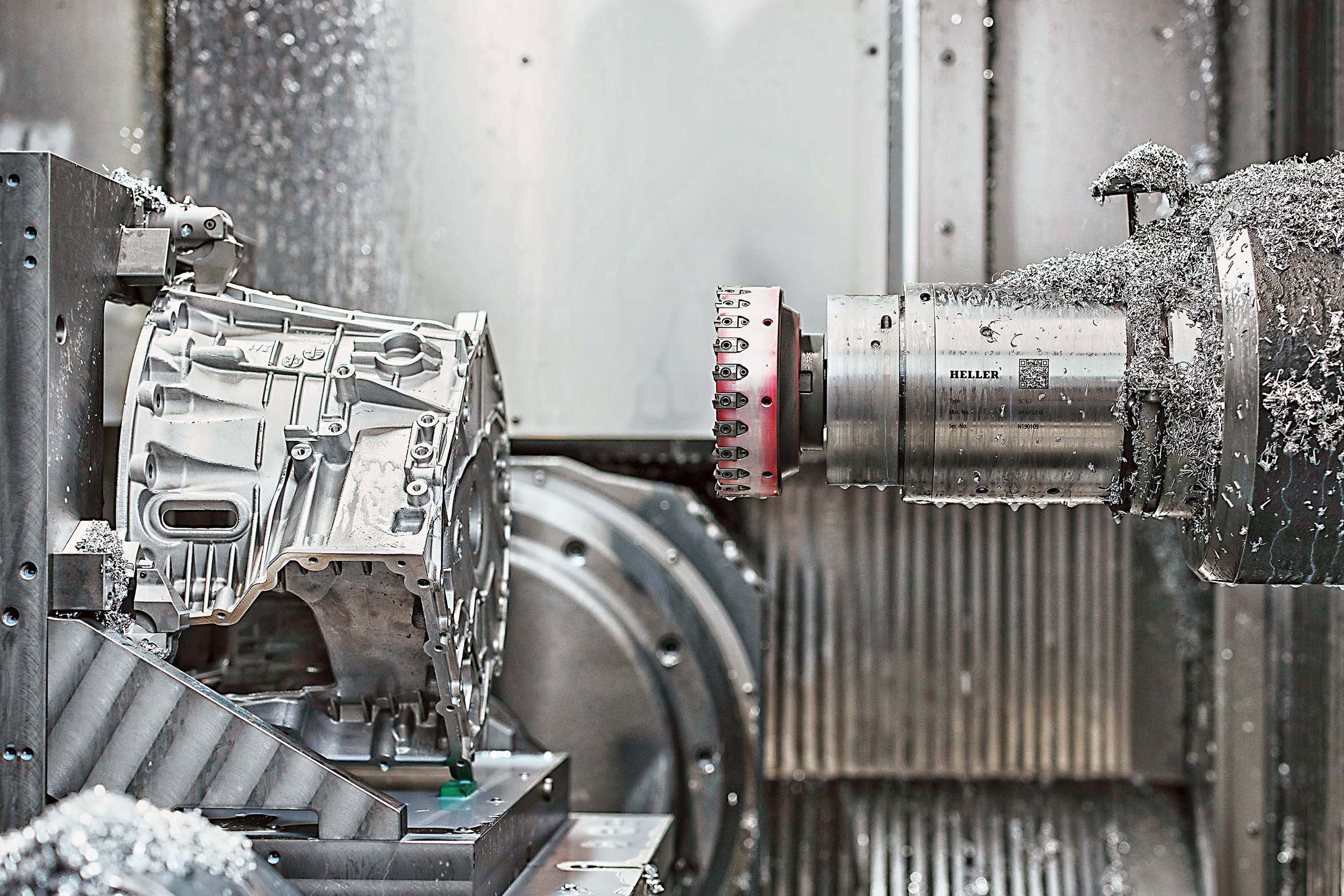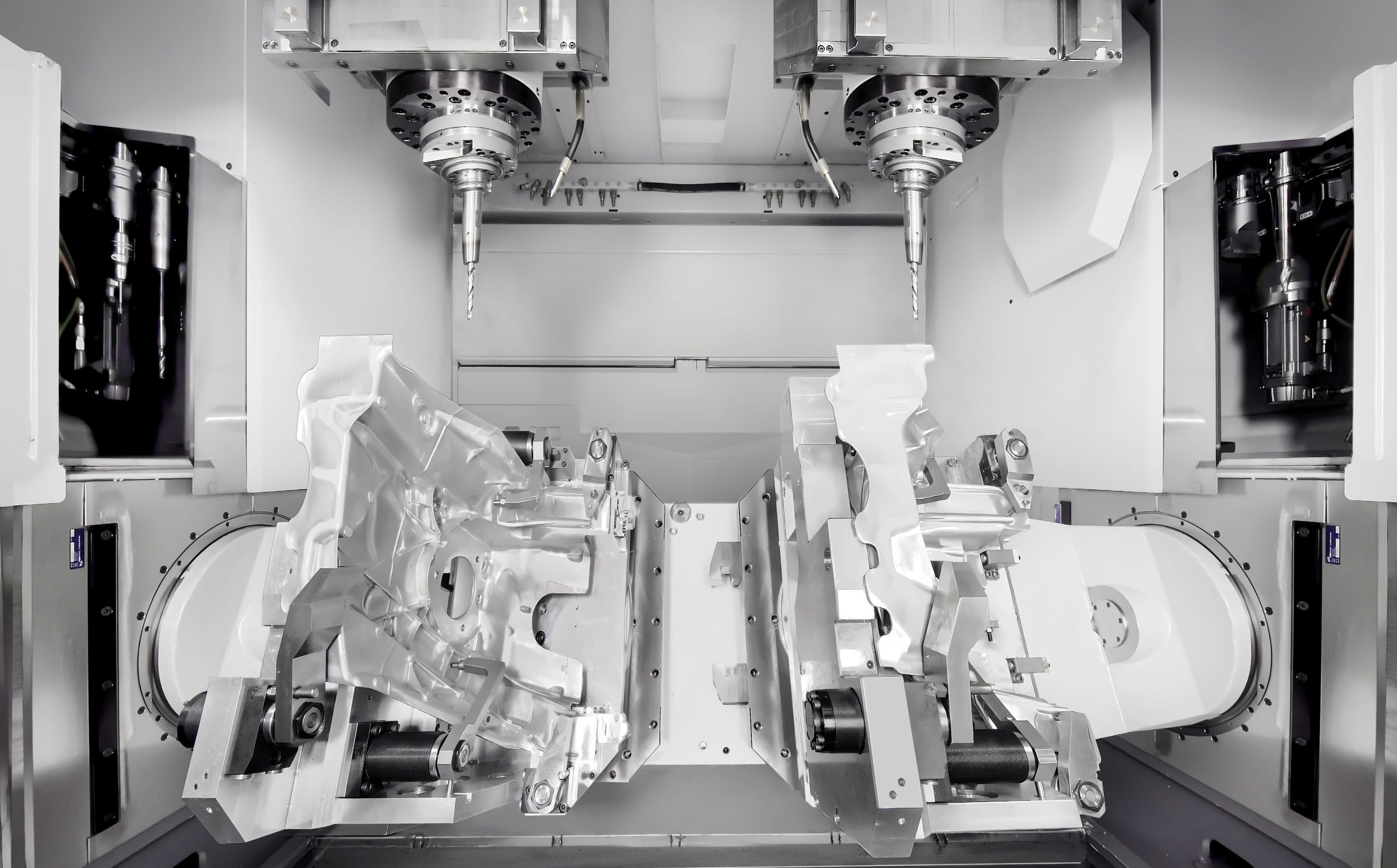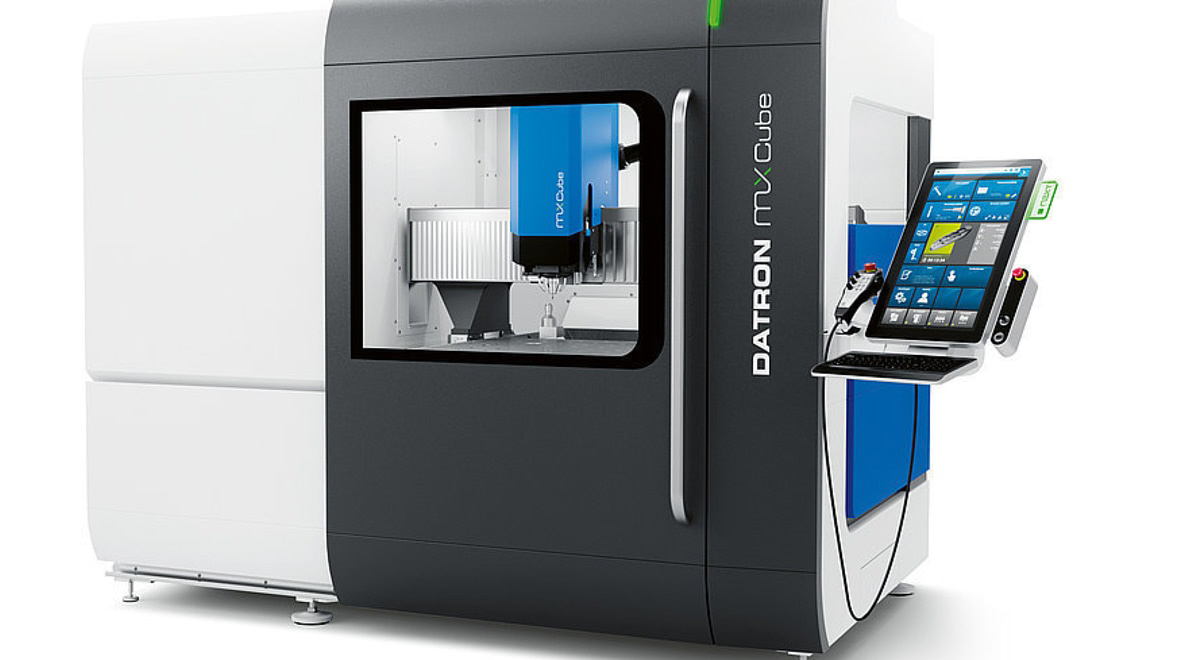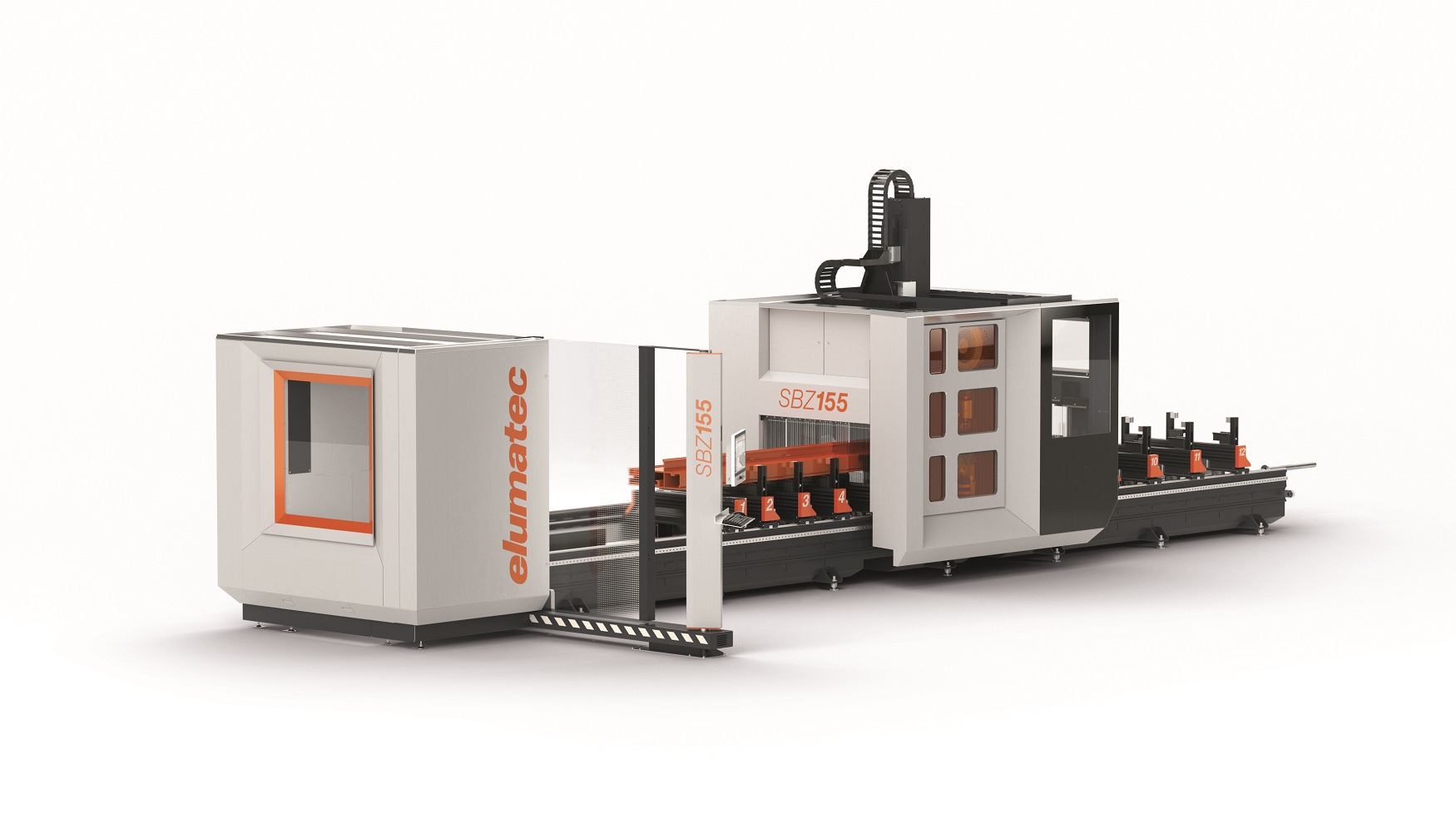In the production of many optical components such as lenses and mirrors, the specified form accuracy and surface roughness are generally an order of magnitude higher than for other machining processes. That is why Son-x GmbH in Aachen, Germany, a spin-off from the renowned local Fraunhofer Institute for Production Technology, uses a five-axis machining centre built by another German firm, Roeders. The manufacturer’s machines are available in the UK and Ireland through sole agent, Hurco Europe.
Son-x manufactures metal components made from various alloys, including high-strength steels, as well as parts made of clear plastic. Quantities range from single pieces to several hundred per year, while dimensions extend from a few millimetres up to half a metre diameter in the case of metal mirrors, for example.
Dr Olaf Dambon, a director of Son-x, says: “Our early work involved ultra-high-precision diamond turning, but parts started coming along that needed a prismatic machining platform able to achieve similar accuracies. We drew up a specification sheet for the machine we wanted and designed a challenging test part for prospective suppliers to produce. Five machining centre manufacturers were shortlisted, including three from Japan, but we chose the Roeders because its trial machining results were the best.”
An order was therefore placed for a Roeders RXP 601 DSH five-axis machining centre.
Dr Benjamin Bulla, another director of Son-x, says: “We have many jobs that run for extended periods, so the long-term stability of the machine’s reference point is crucial. In one instance we had to mill moulds for arrays of hundreds of plastic lenses whose shape required control to within 316 nm. This tolerance was reliably maintained throughout 50 hours of machining.”
For further information www.hurco.co.uk






